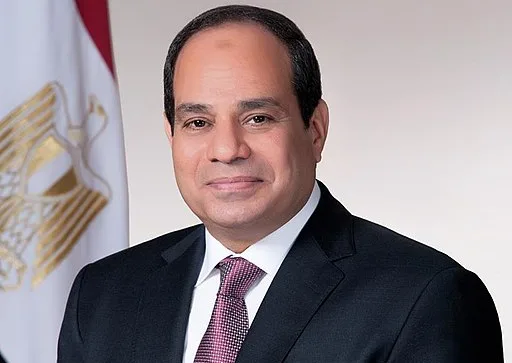Egypt’s road to recovery: Sisi’s victory and economic challenges ahead
Egypt’s President Abdel Fattah al-Sisi embarks on a third term, buoyed by a significant electoral victory but faced with the daunting task of steering the nation out of economic turbulence. Winning December’s presidential election with 89.6 percent of the vote against three relatively unknown challengers, Sisi’s triumph sets the stage for crucial economic reforms and recovery efforts.
President Sisi’s victory signals a continued trajectory of leadership, as he prepares to officially commence his term, with a swearing-in ceremony scheduled before parliament. At 69, this term might be his last, barring further constitutional amendments. Speculation about a potential cabinet reshuffle is rampant as Egypt seeks to mitigate the impacts of a severe economic crisis and foreign currency shortages that have plagued the nation for two years.
Embed from Getty ImagesThe start of 2024 saw Egypt grappling with potential default and economic collapse. However, a dramatic turnaround occurred with over $50 billion in loans and investments pledged by international partners, including a landmark $35-billion land development deal with the United Arab Emirates, an expanded loan from the International Monetary Fund, and new financing agreements with the World Bank and the European Union. This influx of funds has been a lifeline for Egypt, staving off immediate economic peril, as observed by former deputy prime minister Ziad Bahaa-Eldin.
Despite these positive developments, experts like Bahaa-Eldin and economic analyst Mohamed Fouad caution that Egypt’s economic woes are far from resolved. The fundamental issues—rampant public spending, the state’s dominant role in the economy, and soaring inflation rates—require immediate and decisive action. Egyptians await Sisi’s leadership from the New Administrative Capital, against the backdrop of a controversial $58-billion project and a populace struggling with a 35 percent inflation rate.
The generous international bailout comes with expectations for Egypt to adopt a more flexible exchange rate and reduce state and military involvement in the economy. Yet, challenges persist, including signs of government intervention to support the Egyptian pound, contrary to reform commitments.
As Egypt navigates regional instability, with over half a million refugees from Sudan and the ongoing conflict in Gaza affecting its borders, the domestic situation remains tense. The majority of Egyptians, living at or below the poverty line, look towards Sisi’s new term with a mix of hope and scepticism. Despite some initial steps towards political openness, the crackdown on dissent continues, highlighting the complex landscape in which Sisi’s third term unfolds.
As President Sisi moves forward, the balance between economic reform, political stability, and social welfare will be critical. The path to recovery is steep, and the coming years will test the resilience and adaptability of Egypt’s leadership and its people.
